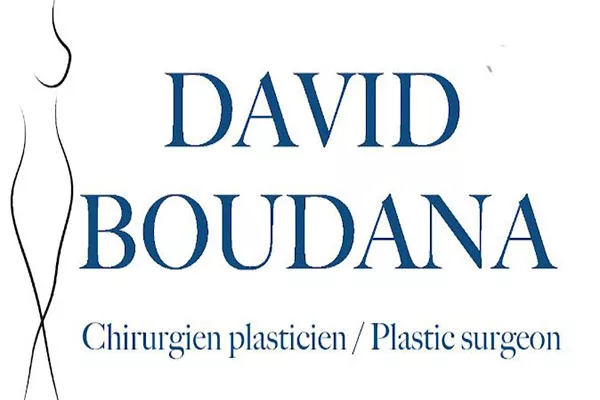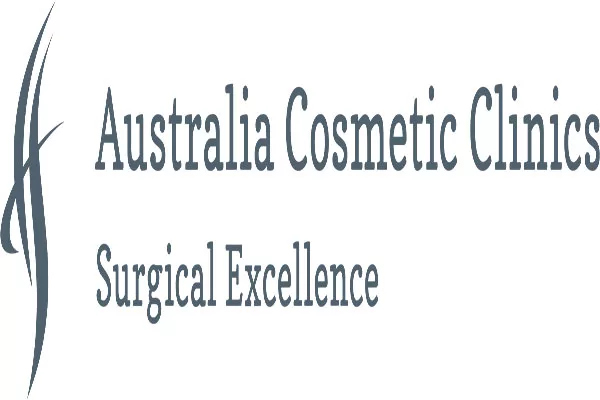Recovery (Post-op)
Recovery after a surgical procedure is crucial to ensure proper healing and prevent complications.
It can be a challenging and uncomfortable process, but there are several steps you can take to make it as smooth and efficient as possible. Here are some essential tips for post-operative recovery:
- Follow your healthcare provider’s instructions: Your physician will provide you with specific instructions on how to recover after your surgery. Follow them carefully and ask questions if you are unsure about anything.
- Rest and take it easy: Rest is a crucial component of the recovery process. Your body needs sufficient time to heal, and overexertion can impede the healing process. Avoid heavy lifting, strenuous activities, and any activity that causes pain.
- Monitor your incision site: Keep a close eye on your incision site during recovery. Check for any signs of infection, such as redness or swelling, and notify your healthcare provider immediately if you notice anything unusual.
- Stay hydrated: Drinking enough fluids is essential after surgery. Water, herbal tea, and clear broths are recommended to flush out any toxins in your body and prevent constipation.
- Eat healthy foods: Nutritious foods that are high in protein such as lean meat, chicken, eggs, and fish are essential to aid in the healing process. Eat a balanced diet that includes fresh fruits, vegetables, and whole grains.
- Take your medication as prescribed: Pain medication and antibiotics are commonly prescribed after surgery. Take them as directed and do not skip doses.
- Practice deep breathing exercises: Deep breathing exercises can help prevent respiratory complications and improve lung function after surgery. Consult your doctor for specific instructions.
- Get plenty of restorative sleep: Adequate sleep is crucial for the healing process. Make sure to get enough sleep and rest during the daytime if needed.
- 9. Manage pain and discomfort: Pain and discomfort are common after a surgical procedure. Use ice packs, heating pads, and massage and acupuncture to manage your pain.
- Attend your follow-up appointments: Follow-up appointments with your healthcare provider are essential for ensuring complete recovery. Attend all scheduled appointments and communicate with your doctor about your condition during each visit.
Recovery after surgery can be physically and emotionally challenging.
It is essential to take care of yourself during this time and seek support from family and friends. Here are some additional tips to help you through the recovery process:
- Follow a routine: Establish a daily routine that includes resting, eating, and taking medication at the same time each day. This will help create a sense of structure and control during recovery.
- Ask for help: Don’t be afraid to ask friends and family for help with daily tasks like grocery shopping, cooking, and cleaning. This can alleviate stress and allow you to focus on your recovery.
- Stay positive: It is normal to experience a range of emotions after surgery, including anxiety, fear, and sadness. Try to stay positive and focus on your recovery goals.
- Stay connected: Isolation can worsen emotional distress during recovery. Stay connected with family and friends through calls, texts, and video chats to maintain social support.
- Stay active: While it is crucial to rest during recovery, light exercise and stretching can help prevent blood clots and improve circulation.
- Take care of your wounds: Proper wound care is essential to prevent infections and promote healing. Follow your healthcare provider’s instructions for caring for your incision site.
- Manage stress: Stress can hamper the healing process. Practice relaxation techniques like meditation, yoga, or deep breathing exercises to manage stress and anxiety.
- Monitor your mental health: Recovery can be emotionally challenging, and it is essential to recognize signs of depression or anxiety. Seek professional help if you experience persistent feelings of sadness or anxiety.
- Stay hydrated: Dehydration can worsen postoperative symptoms like dizziness and headaches. Make sure to drink plenty of fluids throughout the day.
- Keep an open line of communication with your doctor: Communication with your healthcare provider is pivotal to ensure a successful recovery. Discuss any concerns or symptoms you experience during recovery with your doctor.
Managing pain during post-operative recovery is a crucial aspect for a patient’s comfort and rehabilitation.
Here are some things you can do to manage pain during recovery:
- Use medication as prescribed: Pain medications are an essential component of post-operative recovery. Use them as directed by your healthcare provider to manage pain effectively.
- Utilize alternative pain management techniques: Alternative methods like acupuncture, massage, and physical therapy can help alleviate pain and discomfort.
- Take care of the affected area: Proper wound care, including changing dressings and keeping the affected area clean, can help reduce pain and complications.
- Use heat or cold therapy: Ice packs or heating pads can reduce swelling and inflammation, leading to pain relief.
- Stay active: Physical activity can promote blood flow to the area, reducing pain and increasing mobility.
- Stay hydrated: Dehydration can worsen pain symptoms. Ensure to drink plenty of fluids, preferably water, to stay hydrated.
- Relaxation techniques: Relaxation techniques like deep breathing, meditation, or yoga can help reduce pain caused by tension and stress.
- Rest: Adequate rest is crucial for recovery. Taking time off work or activities to rest can help alleviate pain caused by overuse.
- Follow pain management plan: Follow the pain management plan provided by your healthcare provider to ensure a smooth recovery process.
- Maintain open communication: Let your healthcare provider know if you are experiencing pain or have concerns about your recovery process. Having open communication with your provider will ensure that you receive adequate pain management care.
Proper nutrition is essential to speed up the healing process and reduce the risk of complications after surgery.
Here are some tips to ensure that you are eating healthy while recovering:
- Eat nutrient-rich foods: Eat foods that provide ample calories, protein, vitamins, and minerals necessary for healing, including fruits, vegetables, whole grains, lean proteins, and healthy fats.
- Stay hydrated: Drink plenty of fluids, including water, broth, and low-sugar sports drinks, to help promote recovery and remove toxins from the body.
- Eat small, frequent meals: Consuming small, frequent meals throughout the day helps maintain energy levels and can also improve digestion.
- Avoid high-calorie foods: Foods high in fat or sugar may slow down the healing process and cause constipation, nausea, or other complications.
- Start with soft foods: Start with soft foods like soups, yogurts, and mashed potatoes if you have trouble chewing or swallowing after surgery.
- Limit alcohol and caffeine intake: Alcohol and caffeine can cause dehydration and delay healing. Limit your intake to promote vitality.
- Avoid spicy or acidic foods: Spicy or acidic foods may irritate the digestive system, causing discomfort or other complications.
- Take supplements: In some cases, supplements like multivitamins or minerals may be necessary to support healing. Consult your healthcare provider before taking any supplements.
- Focus on whole foods: Whole foods are packed with valuable nutrients necessary for healing. Avoid processed or pre-packaged foods that may contain harmful additives.
- Consult a registered dietitian: A registered dietitian can create a customized meal plan that suits your individual needs, taking into account any underlying medical conditions or medications you are taking.
Physical activity is essential for a healthy recovery process, but overexertion can hinder healing and cause complications.
Here are some tips for staying active during post-operative recovery:
- Follow your healthcare provider’s instructions: Your healthcare provider will provide instructions on when you can start physical activity and what type of exercise is suitable for you.
- Start slowly: Start with mild activities like walking or stretching and gradually increase intensity levels as permitted by your medical professional.
- Avoid strenuous activities: Avoid any high-impact or high-intensity activities that may strain your body or cause discomfort.
- Listen to your body: Pay attention to how your body feels and rest when you feel fatigued or experience discomfort.
- Don’t push yourself too hard: Don’t push yourself to do more than what is feels comfortable. Overexertion can lead to injury or delay the healing process.
- Maintain good posture: Use good posture while sitting, standing, or engaging in physical activity, as poor posture can cause pain or further injuries.
- Use assistive equipment: If recommended by your doctor, use assistive devices such as braces, crutches, or canes to help support your movements.
- Take rest days: Incorporate planned rest days to help your body recover and prevent injury.
- Warm up before exercising: Engage in a slow warm-up routine before starting physical activity, such as light stretching, to prevent injury.
- Maintain open communication: Discuss any exercise or physical activity concerns with your healthcare provider to ensure a safe and effective recovery.
Sleep is an essential component of post-operative recovery.
Sleep helps repair and heal body tissues, regulate hormones and mood, and improve overall health. Here are some tips to help promote quality sleep during the recovery process:
- Stick to a regular sleep schedule: Try to maintain a consistent sleep schedule by going to bed and getting up at the same time each day.
- Create a sleep-conducive environment: Create a comfortable and dark sleep environment by adjusting temperature, noise, and light to optimize sleep conditions.
- Invest in comfortable bedding: Invest in comfortable and high-quality bedding to ensure a restful sleep.
- Practice relaxation techniques: Relaxation techniques such as meditation, deep breathing exercises, or gentle yoga poses can help promote relaxation and improve sleep quality.
- Avoid caffeine and alcohol: Caffeine and alcohol can interfere with sleep quality. Avoid consuming these substances before bedtime.
- Limit screen time: Avoid using electronic devices in bed, as the blue light from screens suppresses melatonin, causing restlessness.
- Use white noise machines: White noise machines or soothing music can help block out external noise and promote a restful environment.
- Limit napping: Avoid napping for more than 20-30 minutes during the day, as it may interfere with nighttime sleep quality.
- Practice good sleep hygiene: Engage in good sleep habits such as reading, relaxing, or taking a warm bath before bedtime to promote relaxation and improve sleep quality.
- Discuss sleep concerns with a healthcare provider: Discuss sleep concerns with your healthcare provider, as sleep disturbances can indicate underlying issues like pain, anxiety, or sleep apnea that require treatment.
Good hygiene practices are essential for post-operative recovery to prevent infections and promote healing.
Here are some hygiene tips to follow during post-operative recovery:
- Wash your hands frequently: Frequent handwashing is crucial to prevent the spread of bacteria and viruses.
- Keep your incision site clean and dry: Clean your incision site as instructed by your healthcare provider and keep it dry to prevent infection.
- Change dressings as recommended: Change dressings as recommended by your healthcare provider and keep the incision site covered until healed completely.
- Keep your clothing clean: Change your clothing regularly and wash them in hot water to eliminate bacteria and viruses.
- Avoid touching your incision site: Touching or picking at your incision site can increase the risk of infection or slow the healing process.
- Shower or bathe as recommended: Follow your doctor’s instructions regarding showering or bathing after surgery.
- Use sterile equipment when changing dressings: Change dressings using sterile equipment or gloves to minimize the risk of infection.
- Avoid sharing personal items: Avoid sharing personal items like towels, brushes, or razors to prevent the spread of bacteria and infections.
- Maintain good oral hygiene: Oral hygiene is essential to prevent infections. Brush your teeth twice daily, floss regularly, and use mouthwash to kill bacteria present.
- Attend your follow-up appointments: Follow-up appointments with your healthcare provider are necessary to ensure that your healing progresses smoothly. Attend all scheduled appointments and communicate with your doctor about any concerns you may have.
Mental health is as crucial as physical health during post-operative recovery.
Here are some tips to help improve your mental health and promote a speedy recovery:
- Reduce stress: Stress can hinder the healing process. Engage in relaxation techniques, such as meditation, yoga, or deep breathing exercises to lower stress levels.
- Surround yourself with a support system: Surround yourself with positive support from family and friends who uplift and understand your needs to stay motivated during recovery.
- Practice self-care: Engage in activities that nurture your soul, such as listening to music, journaling, or practicing a new hobby.
- Stay positive: Try to stay optimistic during your recovery journey, and focus on the progress you are making.
- Ask for help: Don’t be afraid to ask for help when needed. Speak with a counselor or mental health professional for assistance.
- Keep busy: Find activities that you enjoy and focus on them to keep your mind engaged and distracted from the recovery process.
- Take breaks: Recovery can be overwhelming. Take frequent breaks or naps to rest, recharge, and rejuvenate.
- Get enough sunlight: Sunlight exposure helps produce Vitamin D, which promotes a positive mood and helps improve mental health.
- Practice gratitude: Being grateful can improve your mental and physical health by reducing feelings of anxiety, depression and increasing overall happiness.
- Find meaning and purpose: Reflect on your values and what is meaningful to you. Use this as a goal or purpose to work towards during the recovery period.
Returning to work or normal activities after surgery is an essential milestone in post-operative recovery.
Here are some tips to help with a smooth transition back to normal life:
- Follow your healthcare provider’s recommendations: Before returning to work or engaging in any activities, follow your doctor’s instructions regarding the recovery timeline and restrictions.
- Start gradually: Return to work or normal activities gradually and start with lighter tasks, easing back into a regular routine.
- Seek accommodations if needed: If you require accommodations for returning to work or normal activities, such as reduced hours or modified tasks, discuss this with your employer and healthcare provider.
- Manage fatigue: Fatigue is common during the recovery period. Take breaks when needed to prevent overexertion.
- Use assistive devices: If recommended, use assistive devices such as ergonomic chairs or braces to help support your movements.
- Avoid stressors: Avoid situations that can cause stress or anxiety during the recovery period, as they can impede the healing process.
- Communicate with your colleagues: Communicate with your coworkers, supervisor, or clients to update them on your recovery and any limitations you may have.
- Stay active: Engage in light physical activity to help aid in the recovery process.
- Attend all follow-up appointments: Attend all follow-up appointments with your healthcare provider to ensure that you have a safe and successful recovery.
- Listen to your body: Listen to your body, rest when needed, and do not push yourself too hard. Your body can only tolerate a certain amount of stress as it recovers.
The recovery process can take a physical, emotional, and financial toll.
Here are some tips to help manage expenses and recovery-related financial stressors:
- Communicate with your healthcare provider: Discuss your concerns about the cost of medical care with your healthcare provider. They may be able to provide options for reducing expenses.
- Negotiate medical bills: If you receive medical bills that you are unable to pay, negotiate a payment plan or discuss options with the billing department.
- Check insurance coverage: Check with your insurance provider to understand your coverage and how much you will be responsible for paying.
- Apply for financial assistance: Look for programs that offer financial assistance for medical bills or assistance with other expenses like transportation or meals during recovery.
- Budget for recovery: Plan your expenses, including medical bills and lost wages, to ensure that you are informed of any financial limitations.
- Consider crowdfunding: If you need extensive financial assistance, you can create a crowdfunding campaign with the support of friends or family.
- Explore alternative income sources: If you are unable to work during the recovery period, explore alternative income sources, such as selling unwanted items or working from home.
- Seek financial advice: If you are struggling with financial stress, seek advice from a financial professional to discuss your options.
- Prioritize your expenses: Prioritize your essential expenses, such as medical bills and necessities, while cutting back or eliminating nonessential expenses.
- Stay positive: Financial stress may feel limiting, so practice patience and continue to focus on the goal of a successful recovery. Seeking support from friends, family, or support groups can also help alleviate stress.
Driving
Wound Care and Itchy
Wound Care and Itchy
Textured implants dropping/softening
| This page is not advice and is intended to be informational only. Consult your physician before undertaking any surgical procedures. |
Most famous clinics
Marina Plastic Surgery
Dr. Grant Stevens
is the founder and Medical Director of Marina Plastic Surgery and The Institute; A Medical Spa in Marina Del Rey, California.
USA 4560 Admiralty Way Suite 256
Marina Del Rey, CA 90292
Phone : 310-494-2881
Nazarian Plastic Surgery
Dr. Sheila Nazarian
MMM is a Board Certified Plastic Surgeon and the founder of Nazarian Plastic Surgery and Spa26 in Beverly Hills.
USA 120 S. Spalding Dr. #315,
Beverly Hills, CA 90212
Phone: (310) 773-3039
Westlake Dermatology
Westlake Dermatology is a national leader in dermatology and plastic surgery. Our specialization in minimally invasive procedures.
USA 2201 Onion Creek Parkway
Austin, Texas 78747
Phone: 512-649-3376
Central Scottsdale Surgery Center
Dr. Remus Repta
Dr. Repta, our founder, is widely recognized for his exceptional skills, and the quality and artistry of his surgical work.
USA 3271 N Civic Center Plaza #105,
Scottsdale, AZ 85251
Phone:(855) 377-3782
Forest Hill Institute Of Aesthetic Plastic Surgery
Dr. David Boudana
Dr. David Boudana, a board certified plastic surgeon, is a graduate of the prestigious University of Paris Descartes.
Сanada 1188B Eglinton Avenue West
Toronto, Ontario
Phone:(416)785-7864
Australian Cosmetic Clinics
Dr. Shaz Musavi
Dr Shaz is a fully trained Cosmetic Surgeon who brings his extensive aesthetic background and professionalism.
Australia Suite 1, 448 Pacific Highway
Artarmon, NSW 2064
Phone: 1300 559 848











